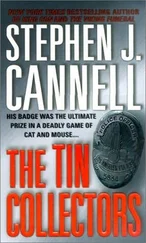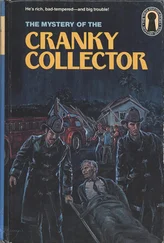She shook her head. “Not this time.” He thought she was talking about breakfast, but she explained, “I can’t see someone who’s involved with someone else. I’ve done that.”
“I’m really sorry,” Orion said again.
“I was too,” she said. “Thanks for all your help. Good-bye, good morning, and all that. You’ll have to explain about the rubber chicken.”
“It was your idea to drown it,” he called after her as she hurried away. “You should be the one to tell them.”
She turned and smiled. “I’ll say you donated it to the Free Software Foundation. Everyone will understand.”
“Where’s the milk?” Molly asked as soon as Orion arrived home.
“Oh,” Orion said.
“I tried to call you.”
“I was working all night.”
“And what do you think I was doing?”
Coming in from that gold morning, he felt as though he were returning from Italy—from some far country filled with art. The apartment looked sad, neglected. Dark. He yanked on the shade in the bedroom and light poured in to reveal the pile of clean laundry on the bed.
“That’s depressing,” Molly said.
“I just got home,” Orion protested.
“So did I!”
This was their competition—to see who could stay out working longer.
“All I asked you to do was buy milk,” Molly said.
“I know. I’ll get it.”
“And when you go down you could take out the recycling,” she said.
“Okay.” He settled on the futon in the living room and opened his laptop.
“Now.”
“I said I will.”
Then she shook her head at him, snatched the recycling bin and carried it downstairs, magazines and plastic bottles trailing behind her.
“I said I’d do it.” He followed, picking up after her.
“I’m not interested in waiting until you feel like doing it.”
“Molly.” He opened the door at the bottom of the stairs, and she ran down the cracked cement steps in front of their building and heaved the bin onto the curb. Too late. The orange Cambridge Public Works recycling truck was driving away.
She didn’t say a word, but turned back, tromping the stairs to their apartment with heavy dejected feet. Orion followed her inside with the recycling bin. The city would fine them if they left it out.
“Look, I’m sorry,” he called up to her on the stairs.
“Don’t talk to me.”
“I did the laundry like you asked,” he said as they reentered the apartment.
She looked through the open door at the pile of clean rumpled clothes. “Half the laundry.”
“All of it!”
She turned on him. “If you don’t put it away, that’s half the laundry.”
There was something grand and ridiculous in this argument, but he knew better than to say so. “We need a wife,” he said lightly.
“Good idea. You can give her options.” Molly strode into their bedroom, tore off her scrubs, and went to bed. He had never imagined that pulling up the sheets could be so much like slamming a door.
Later, much later, she woke and showered and they ordered pizza and picnicked in the living room, and they talked about hiring Merry Maids to come once a week to clean the apartment, and they agreed to send out their laundry and have it all washed and folded, and they decided to buy a car for Molly to drive to the hospital so that she wouldn’t have to take the T at all hours. They didn’t have the money yet, but they would in six months. They could solve almost all their problems soon.

The next day at ISIS, Orion kept busy writing code, but he could not stay inside it. Numbers no longer printed themselves on his retina. He saw Sorel’s face instead, and heard her low voice. Her chicken song. Where was she? Her desk was bare, her cubicle empty. Was she somewhere in the building? Out on the sidewalk smoking? She was such a strange, compelling person, the only one he liked at ISIS. Why, then, had he kissed her under false pretenses? What a stupid thing to do. He sat at his desktop and typed:
Sorel: How was breakfast?
He deleted the line.
Sorel,he typed, forgive me if I made you uncomfortable.
Forgive me? Uncomfortable? He deleted again.
Sorel, how are you?Delete.
Sorel, who are you?Delete.
Sorel, you didn’t come in today.Delete. Obviously she knew that.
Sorel, where are you?The moment he sent this message, his own words returned to him in his in-box, and for a split second he imagined she was writing back. New message. Subject: Where are you?
But the message wasn’t from Sorel, it was the usual ping from Jonathan. Orion was late. The R & D meeting had started. Where are you?
R & D meetings weren’t bad—just Orion, Aldwin, Jake, Jonathan, and Oskar, their old advisor, now chief scientist. As students, Orion and his friends had gathered in Oskar’s office and worked for results worthy of a paper at STOC or FOCS. Now the aim was new product and patents for the company: more customers, fresh revenue, to build on the upcoming IPO. The stakes were higher now, the goals financial, but meetings with Oskar were the same as always. Four guys in mismatched swivel chairs, vying to impress their difficult-to-please professor.
Oskar did not acknowledge Orion when he bounded in and took his seat in the corner. He continued scribbling on the oversized whiteboard covering his office wall. When Oskar finished, he stood back and everyone gazed at his new model for a secure system. The drawing looked like an exploding star.
“What if you drew these edges together?” Jonathan asked.
“Show me.”
Jonathan took a green dry-erase marker and simplified the star.
Oskar shook his head and took the marker out of Jonathan’s hand. “This is the flaw. Do you see?”
Orion didn’t see, but Jonathan flushed a little where he was standing by the board, and tried to explain himself.
“N-N-N-No.” Oskar wagged his finger at Jonathan, shooting him down.
“What if you tried this?” Jake rubbed out half of Jonathan’s star with his hand and redrew it in red.
Long pause, as Oskar considered the board, and his students waited for his verdict. Their resident cryptographer was a lively seventy-year-old who had come to America by way of Israel. His eyes were small and gleaming, as was his bald head. He had been married “once upon a time” as he put it, and his son and daughter were both theoretical computer scientists, one at Hebrew University and one at Carnegie Mellon. Oskar’s accomplished children were nowhere near as accomplished as he, but Oskar did not lose sleep over this. He was accustomed to his superiority.
He was so much fun, thought Jake. Otherworldly, mused Orion. Egomaniacal, Jonathan protested silently.
Jonathan was slightly out of sorts, annoyed with Orion for coming late, jealous of Jake’s easy brilliance. As CTO, Jonathan did the most on a day-to-day basis to build the company. He did the most and cared the most, and yet, in Oskar’s office, Jake’s ideas were the best. Jake did not work for those ideas; he did not have to travel or negotiate or fight for them. He was original. And Jonathan was smart enough to understand the value of everything Jake said. The businessman he was becoming rejoiced and looked for ways to capitalize on Jake’s gifts, but the boy in Jonathan felt differently.
“Don’t you think it’s good for you to fall short sometimes?” Emily had suggested once, a question sweet and also cutting as she lay folded in his arms.
“No,” Jonathan had retorted. “I don’t think it’s good for me at all.”
Читать дальше













